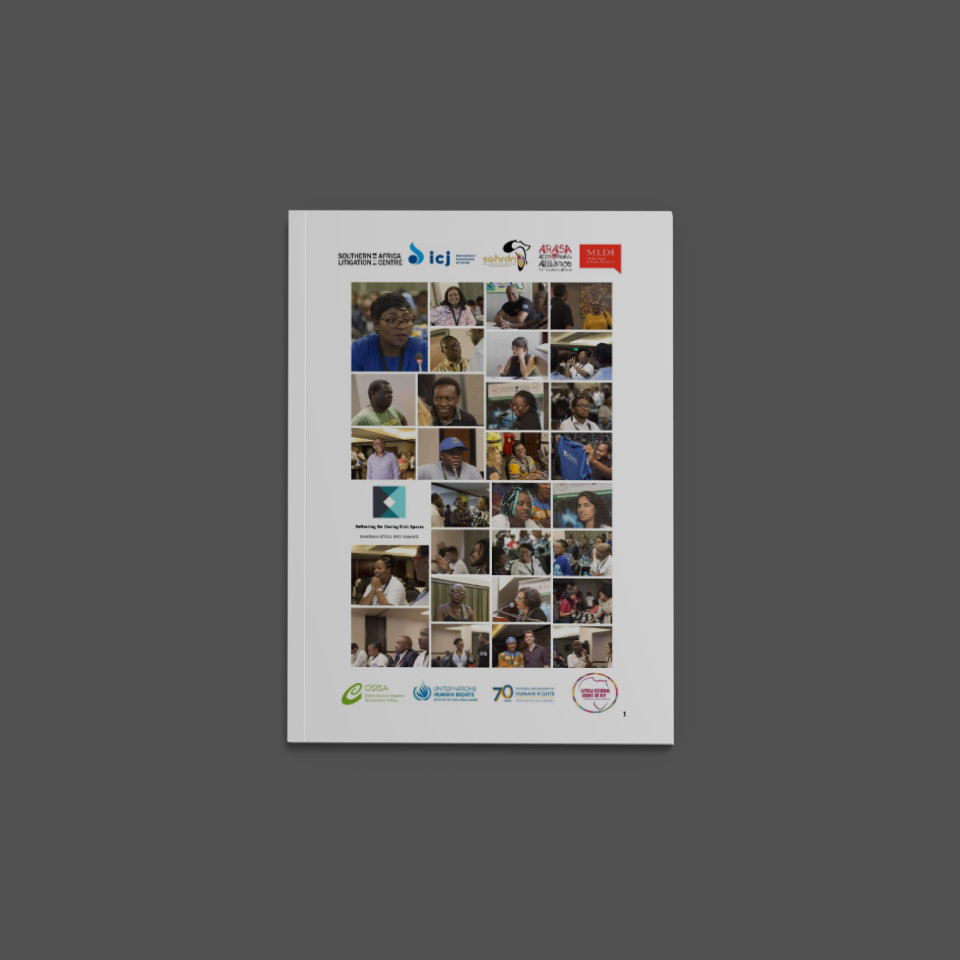
From 14 to 16 November 2018, 100 human rights defenders from across Southern Africa met to discuss the closing of civic spaces in the region. The Summit noted points for activism to ensure that human rights defenders are able to carry out their work.
We call on governments to uphold the rights to freedom of assembly, freedom of expression and freedom of association and to implement the following demands to facilitate the protection of these rights:
Reform laws to ensure freedom of expression, association and assembly:
- Reform laws relating to assemblies, associations, media, and cybercrimes, to ensure their compliance with regional and international human rights standards.
- Repeal the offences of criminal defamation, defamation/insult of the President or public officers, sedition, spreading false news.
- Remove stigmatising and marginalising laws including those criminalising consensual same-sex sexual acts, and outdated mental health laws.
- Refrain from using national security or public morality as arguments to prevent the exercise of the rights to expression, assembly and association.
- Draft and implement laws which promote access to information and data protection.
- Improve public participation in the law-making process and ensure civil society input in the development of laws, including those relating to NGO regulation, assemblies, cybercrimes, media, hate speech, access to information and data protection.
Ensure access to justice:
- Develop effective, independent and accessible complaints mechanisms that can address rights violations, including national human rights institutions, and police complaints bodies.
- Ensure that under-resourced communities can access the courts, including by providing legal aid for human rights violations.
- Ensure that the judiciary and police are able to execute their roles with complete independence.
- Adhere to recent court decisions which emphasise the rights to freedom of assembly, association and expression.
- Restore access of individuals to the SADC Tribunal.
- Make a declaration under Article 34.6 of the Protocol to the African Charter on the Establishment of the African Court, in order to allow individuals and NGOs to access the African Court on Human and Peoples’ Rights directly.
Create an enabling environment for human rights defenders:
- Protect human rights defenders and journalists from attacks, surveillance and hate speech.
- Investigate threats, assaults, abductions, murders and enforced disappearances perpetrated against human rights defenders, journalists, and other marginalised persons including gays, lesbians, transgender persons, sex workers and persons with albinism.
- Intervene when the criminal justice system is used to persecute persons, including by withdrawing arbitrary charges against human rights defenders and journalists.
- Provide support to human rights defenders and journalists who seek asylum as a result of persecution.
- Promote press freedom. Facilitate the self-regulation of the media and remove onerous licensing and fee requirements for journalists, including foreign journalists, bloggers and social media users.
- Ensure the rights to association, assembly and expression are vigorously and equally protected during election periods.
Southern Africa HRD Summit Statement and Report



